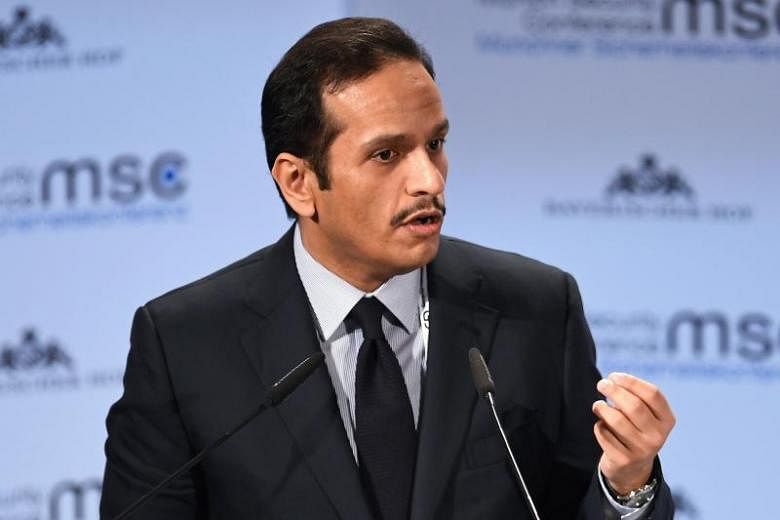RIYADH (REUTERS) - Qatar's foreign minister said recent talks have broken a protracted stalemate with Saudi Arabia and that Doha was open to studying demands by its rivals in a Gulf dispute but would not turn its back on ally Turkey.
The row between US-allied Arab states saw Saudi Arabia, the United Arab Emirates, Bahrain and Egypt cut diplomatic and trade links with Qatar in June 2017 over allegations that it backs terrorism. Doha denies the charge and says the embargo aims to undermine its sovereignty.
"We have broken the stalemate of non-communication to starting a communication with the Saudis," Sheikh Mohammed bin Abdulrahman al-Thani told CNN on Sunday (Dec 15).
"We want to understand the grievances. We want to study them and to assess them and to look at the solutions that can safeguard us in the future from any other potential crisis," he said without mentioning what concessions, if any, were possible.
The boycotting nations set 13 demands, including closing Al Jazeera television, shuttering a Turkish military base, downgrading ties with Iran and cutting links to the Muslim Brotherhood.
Sheikh Mohammed, who made an unannounced visit to Riyadh in October amid hints the rift could soon subside, denied Qatar has direct ties with the Brotherhood, which the other countries label a terrorist organisation.
He also said Doha would not alter its relationship with Ankara in order to resolve the dispute, which has undermined Washington's efforts to maintain Gulf unity to confront Iran.
"Any country that opened up for us and helped us during our crisis, we will remain grateful for them ... and we will never turn our back to them," he said.
Turkey sent troops, military hardware, food and water to small but wealthy Qatar after the boycott began.
Asked how long a resolution would take, Sheikh Mohammed said: "We believe we are still at a very early stage, and what happened in the last 2-1/2 years was a lot and there is, I think, a need for some time to rebuild trust again." Qatar's premier attended an annual Gulf Arab summit in Riyadh last week, its highest representation since 2017, but the boycott got no direct public mention.
Efforts to end the row appeared to intensify after a September attack on Saudi oil plants that initially halved the kingdom's output and pushed the region toward war. Riyadh and Washington blame the strikes on Iran, which denies involvement.

